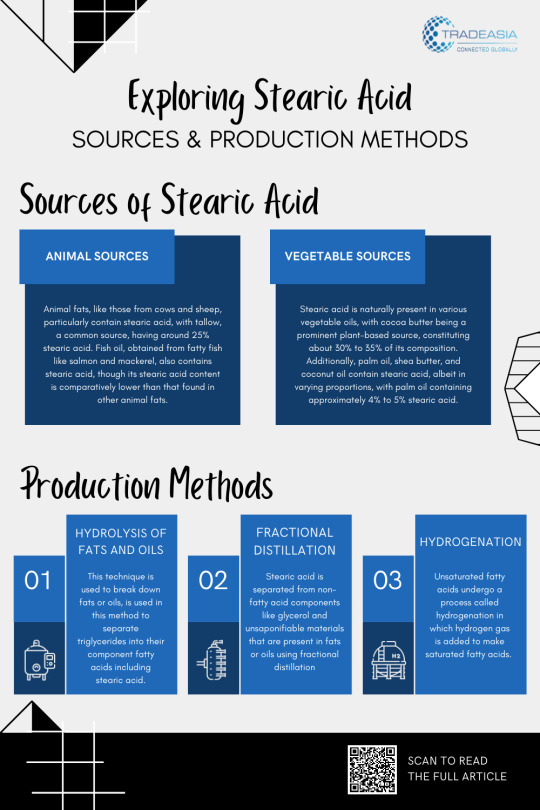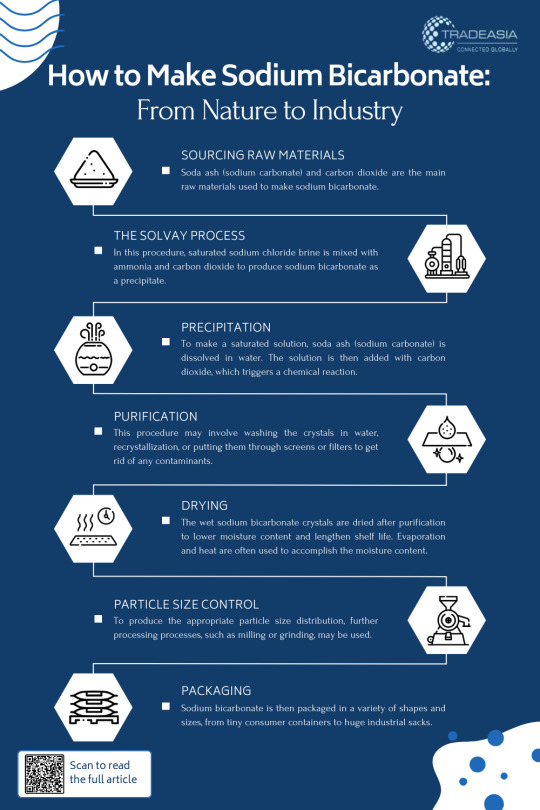Tradeasia International was first established in 2004 with the sole intention of carrying out chemical distribution services especially to commodity industries in many parts of the world.
Don't wanna be here? Send us removal request.
Text

A saturated fatty acid called stearic acid is often present in a number of natural sources and manufactured for industrial uses including food, cosmetics, pharmaceutical, and other industries.
Read more about Stearic Acid on our blog site stearic-acid.net
#chemical industry#chemical suppliers#industrial chemicals#chemical manufacturing#stearic acid#stearic acid sources#stearic acid production process
0 notes
Text

Sodium sulphate, also known as Glauber’s salt, is a versatile inorganic compound with numerous industrial applications. Its unique chemical properties and low cost make it an attractive choice for various sectors.
Read more about Sodium sulphate blog at sodiumsulphate.biz
#chemical industry#infographic#chemicals#chemical applications#sodium sulphate#chemical suppliers#sodium sulphate applications
0 notes
Text

The chemical compound sodium bicarbonate is usually referred to as baking soda. It is produced via a fascinating chemical process that begins with naturally occurring raw materials and results in a high-quality, widely-used product.
#chemical industry#infographic#chemical suppliers#chemicals#manufacturing#sodium bicarbonate#baking soda#production process
0 notes
Text

Explore the differences in composition, properties, production process, applications, and cost comparison of soda ash light vs soda ash dense.
Read more about Soda Ash Light on our blog site sodaashlight.com
#chemical industry#infographic#chemicals#soda ash light#soda ash dense#soda ash#soda ash light vs dense#industrial chemicals#chemical suppliers
0 notes
Text

Glycerine or glycerol is classified into two types: refined glycerine and crude glycerine. We’ll look at the fundamental differences between these two kinds.
#chemical industry#infographic#refined glycerine#crude glycerine#crude vs refined glycerine#glycerol
0 notes
Text

Understanding how gum turpentine is made requires delving into the intricate process of tapping pine trees and distilling the resin to obtain this valuable natural product.
#chemical industry#manufacturing#chemical production process#gum turpentine#gum turpentine production process#gum rosin
0 notes
Text

Gum rosin is a natural resin derived from pine trees and finds applications across various industries. The quality and performance of gum rosin greatly depend on its grade and specifications.
Read the comprehensive guide at gum-rosin.net Blog
0 notes
Text

Due to its adaptability and possible uses, crude glycerine, a byproduct of the production of biodiesel and other industrial processes, has attracted a lot of curiosity in recent years. However, concerns have also been raised regarding its safety and if it presents any risks to the environment, human health, or industrial operations.
0 notes
Text

Explore the procedures and methods used to create this crucial chemical as we delve into the intriguing realm of caustic soda manufacturing.
0 notes
Text

The ten surprising and lesser-known uses of boric acid powder, exploring its potential in diverse areas of daily life, from cleaning and health remedies to gardening and more.
0 notes
Text


For centuries, acetic acid vinegar, commonly known as vinegar, has held a pivotal role in both culinary practices and household management. Delve into the origins, production, various types, culinary and household uses, as well as potential health benefits of acetic acid vinegar by reading our blog at acetic-acid.net
1 note
·
View note